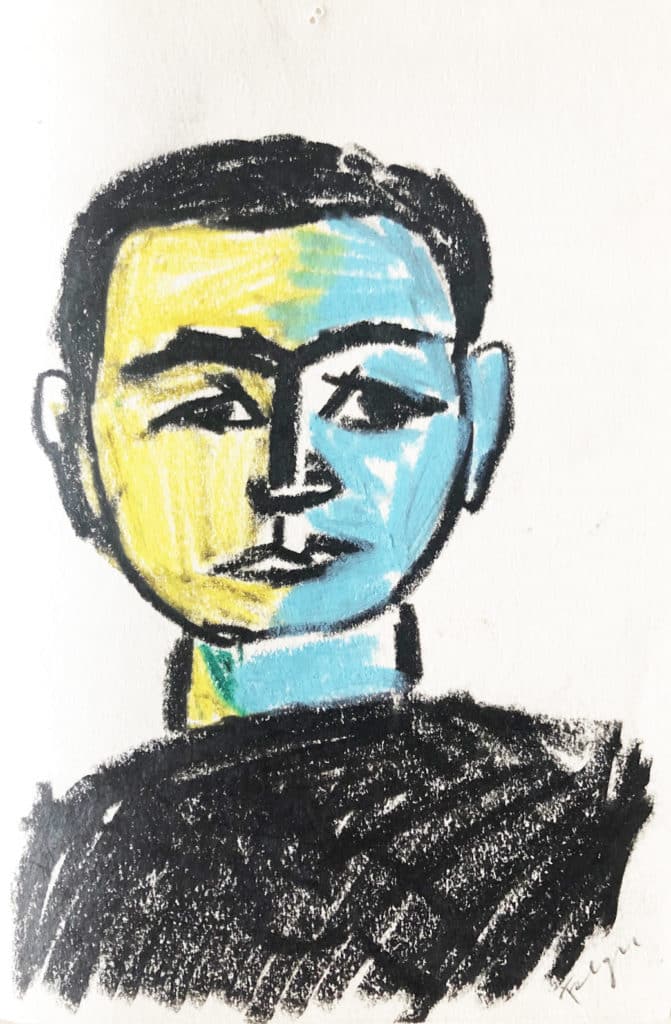SELF PORTRAIT
1959
PASTEL ON PAPER
16,5 x 10,8 CM
At the age of 41, in November 1976, Andreas Felger writes in one of his many blank books, most of which are described only sparingly and are therefore more sketchbooks than diaries: “[T]hat which we carry around deep inside us in impressions, in images of landscapes, encounters with people, terrible and beautiful things, that is what a picture, an impression in wood or color is meant to express. So that with one or the other viewer a sudden lighting up, a recognition is there. He finds himself again!”
The work is for the artist the result of the dialogue with himself, for the viewer the work is the occasion of the self-talk. If it succeeds, both articulate something that mirrors and affects them. Through the objects, be they drawings, paintings, sculptures or installations, points of contact arise between Andreas Felger and the viewers of his works. The self-portrait of an artist is a special case of this encounter: How do I recognize something of my own in the self-image of the artist?
With striking, strong strokes, the artist set the column of the bridge of the nose, from which the two arches of the eyebrows emanate, cubically framing the contour of the hair, which is perceived as a compact form. The head is not quite centered on the neck, and the neck ends on broad strokes that are more reminiscent of Felger’s landscapes than an upper body. A certain disconnectedness of the parts, if not their dissociation, becomes apparent and continues in the face. Not only is the face divided in color, but also formally a split is suggested, reminiscent of many of Picasso’s cubist depictions of man, the falling apart of a face into a profile and an en face view. The expression of the gaze corresponds to this, introspective-melancholic on the right half, critically outward-looking on the left.
Thus, the clear powerful color strokes reveal a difficult view of the counterpart, questioning, doubting, discreetly broken. Which viewer would not know from his own experience about the emotional dispositions that correspond to such a self-image and could recognize himself in it?
Text by Marvin Altner

